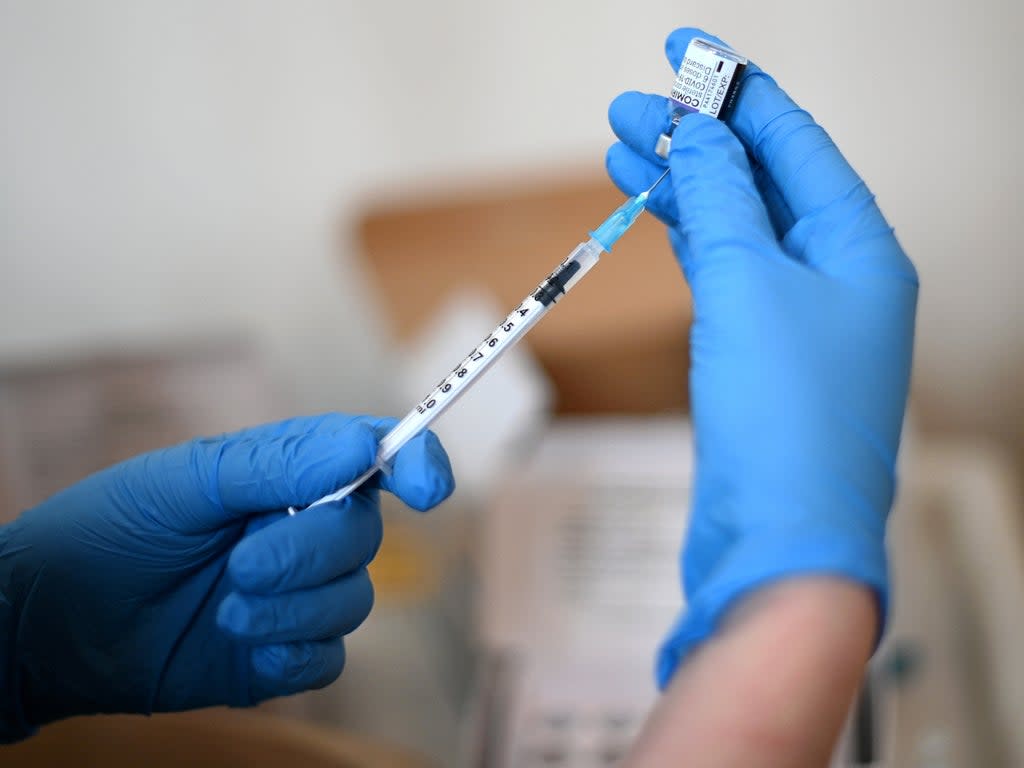Pfizer antibodies may only partially protect against omicron, early study suggests

The neutralising antibody response generated by the Pfizer/BioNTech coronavirus vaccine may be 41 times less effective against the omicron variant than the initial Covid virus type, an early study has suggested.
There appears to be a “very large drop” in immunity against the new variant among those given Pfizer’s vaccine, said Alex Sigal, a professor at the Africa Health Research Institute, after his laboratory studied blood samples of 12 people vaccinated with the jab.
But – in results with promising implications for booster jabs – antibodies in samples from those who had been both double-vaccinated and naturally infected with coronavirus appeared significantly more effective against the new variant, according to the study, which has not yet been peer-reviewed.
Even if current vaccines prove less effective at preventing breakthrough infections in people who are double-vaccinated, scientists have said they widely expect the jabs to continue to offer significant protection against severe illness and death.
The team in South Africa also found that the omicron variant appears to use the same protein as previous iterations of the virus, the ACE2 receptor, in order to bind with human cells – which is the target of current vaccines.
Prof Sigal wrote on Twitter that the results were “better than I expected of omicron”, adding: “The fact that it still needs the ACE2 receptor and that escape is incomplete means it’s a tractable problem with the tools [we’ve] got.”
He added that the data from the study was likely to be adjusted as the team continued their experiments.
Responding to Prof Sigal’s summary of the findings, Sir Jeremy Farrar, the director of the Wellcome Trust, thanked the team for their “hugely important” and “sobering” work.
And Professor Danny Altmann, an immunologist at Imperial College London, urged those eligible to get their booster dose, saying: “Most boosted people would fend this off nicely, even with the 40x drop.”
Amid wide praise for Dr Sigal’s team’s quick work in putting the study together, Catherine Moore, a consultant clinical scientist in virology at Public Health Wales, said: “Fantastic to see this out so soon. I think it shows what we expected, and it’s certainly not completely doom and gloom.”
Read More
Omicron symptoms: What to look out for from new variant
What does Greek word omicron mean? How the Covid names are chosen

